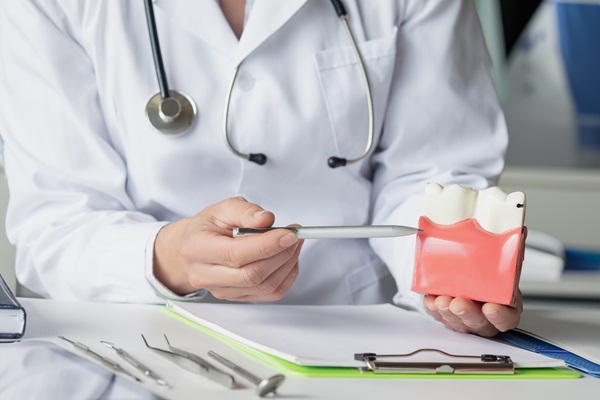Gum Disease Treatment: What To Expect From Start To Finish

Think you may need gum disease treatment? Read on to learn more about this condition. Gum disease treatment is necessary if infection-causing bacteria invade the oral cavity. Without prompt treatment, the bacteria will cause severe gum inflammation, which can lead to problems with the bones and tissues that support the teeth.
An overview of gum disease treatment
Gingivitis is the first stage of gum disease. Gum inflammation occurs when plaque builds up on the gum line. Bleeding gums is one of the first apparent signs. Brushing will remove most plaque, and flossing will keep the space between the teeth and gums free of plaque. At this stage, it is possible to reverse the effects of gum disease and restore oral health.
If left untreated, gingivitis may progress to periodontitis, a disease in which the bacteria in plaque begin to erode the tooth-supporting gums and bone. Treatment may stop more harm from happening, but it cannot reverse the present damage.
Advanced periodontitis may cause the teeth to move or become loose because the disease has destroyed the supporting structures around them. The goal of gum disease treatment now would be saving the teeth to avoid losing them to extraction.
Gum disease treatments
The dentist will evaluate the patient’s situation and suggest the most effective treatment option based on the severity of the disease. The extent of gum disease determines the treatment choices available. If it is a case of gingivitis and tartar has built up on the teeth, the dentist may recommend getting a professional cleaning. They might also suggest antiseptic solutions to help eliminate germs.
If the disease has worsened to periodontitis, eliminating the pockets of bacteria around the tooth would be the main treatment goal. The dentist will try to avert further damage to the gums and teeth. The dentist may suggest pocket reduction and flap surgery that improves gum adhesion and provides a much stronger foundation for the teeth. To stop bacterial action, the dentist may offer antibiotic treatments, such as oral or topical antibiotics.
The dentist will provide instructions for at-home care after the treatment. To keep the gums and teeth healthy and fight plaque, patients need to stick to a regular dental care routine. They will also need follow-up appointments to ensure proper healing progress.
Dealing with severe gum disease
In cases of advanced gum disease, a sequence of treatments may be necessary. The first stage is usually scaling and root polishing, which removes hardened plaque around the teeth and gums. Dental surgery may be necessary by using tissue or bone grafts to repair regions compromised by bacteria. When periodontitis progresses to an advanced stage and causes significant damage, tooth extraction may be necessary.
In conclusion
If you think you may have gum disease, you should see a dentist right away. They will take a close look at the condition of your gums and provide solutions to prevent reoccurrence. If you do not undergo gum disease treatment, it will become one of the worst oral health concerns you may encounter. Contact our dental office to set up an appointment today.
Request an appointment here: https://www.britesmiles4u.com or call Olga Kandov, DMD - Brite Smiles at (215) 330-5212 for an appointment in our Doylestown office.
Check out what others are saying about our dental services on Yelp: Gum Disease Treatment in Doylestown, PA.
Related Posts
Knowing when to seek professional gum disease treatment helps preserve gum health, stop bone loss, and protect natural teeth. Early attention reduces inflammation before it spreads to the supporting bone, affecting chewing comfort. Gum disease, also called periodontal disease, starts when plaque hardens into tartar and irritates the gums. Over time, pockets form between the…
Laser dentistry is a relatively young concept that can target diseased soft tissue and improve the health of gums, jawbone, and more. Dental lasers are approved by the Food and Drug Administration (FDA), and the risks of the procedure are minimal. Subsequently, dentists often recommend laser dentistry for deep dental cleaning procedures. A routine dental cleaning…
Patients often search for root canal treatment when a tooth aches from deep decay, a crack, or inflamed pulp tissue. This therapy removes irritated nerve tissue, disinfects the canal space, and seals the tooth to prevent reinfection. By preserving the natural root, the procedure maintains bite balance and chewing strength. With careful planning, a restored…
Dental implant restoration is a reliable and long-lasting solution for replacing missing teeth. However, caring for and maintaining your dental implant from the start is important to get the best results. A consistent oral hygiene routine and regular dental visits are necessary to protect this investment in your long-term oral health.Brushing and flossing are essential…
